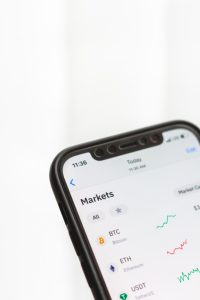Demo Forex Account vs. Live Forex Account: What’s the Difference?
When it comes to forex trading, beginners often find themselves confused with the various types of accounts available. Two common types of forex accounts are the demo forex account and the live forex account. Although they may appear similar at first glance, there are significant differences between the two. In this article, we will explore these differences to help you understand which account is best suited for your trading journey.
A demo forex account, also known as a practice account, is a virtual account provided by brokers that allows traders to experience the forex market without risking real money. On the other hand, a live forex account is a real trading account where traders use their own funds to participate in the forex market. Let’s delve deeper into their differences.
1. Risk and Emotional Factors:
One of the key distinctions between a demo forex account and a live forex account is the level of risk involved. With a demo account, traders are not using real money, meaning there is no financial risk. This allows beginners to experiment with different trading strategies, indicators, and techniques without the fear of losing their hard-earned money. Consequently, the emotional aspect of trading is also absent in a demo account since there is no real money at stake.
On the other hand, a live forex account involves real money, and every trade has the potential to result in gains or losses. This introduces a level of risk that can significantly impact a trader’s emotions. Fear, greed, and other psychological factors come into play as traders experience the actual consequences of their trading decisions. Managing emotions while trading is crucial for success, and it can only be learned through live trading.
2. Market Conditions:
Another difference between a demo forex account and a live forex account lies in the market conditions experienced by traders. In a demo account, the market conditions are often ideal, with trades executed smoothly and at the desired price. This provides a false sense of security, as the real forex market is much more volatile and unpredictable.
In a live forex account, traders face real market conditions, including slippage, spreads, and execution delays. These factors can significantly impact trade outcomes and require traders to adapt their strategies accordingly. Real-time market conditions can teach traders invaluable lessons on risk management and the importance of timing their trades.
3. Trading Psychology:
Trading psychology plays a crucial role in a trader’s success. While a demo forex account can help beginners grasp the basics of trading, it often fails to replicate the psychological aspects of live trading. The absence of real money and emotional involvement can lead to complacency and overconfidence, which are detrimental when transitioning to a live forex account.
Trading with real money in a live account introduces a new set of psychological challenges. Traders must learn to deal with stress, control their emotions, and make rational decisions even when faced with losses. These psychological aspects are often overlooked in a demo account, making it essential for traders to gain experience by trading with real money.
4. Broker Reliability and Execution:
In a demo forex account, traders seldom face issues related to order execution, slippage, or latency. This is because demo accounts are designed to provide traders with a seamless experience to showcase the broker’s platform and features. However, in a live forex account, traders may encounter execution delays, slippage, or even technical glitches, depending on the broker’s reliability.
Trading with a live account allows traders to assess the broker’s execution quality, customer support, and overall reliability. This firsthand experience is crucial in determining whether a broker is suitable for a trader’s needs.
In conclusion, while a demo forex account provides a risk-free environment for beginners to learn and practice trading, it cannot replicate the real market conditions and psychological challenges of live trading. Transitioning to a live forex account is essential for traders to gain experience, manage risk, and develop the necessary trading psychology. It is crucial to strike a balance between learning with a demo account and gradually transitioning to a live account to ensure long-term success in the forex market.






